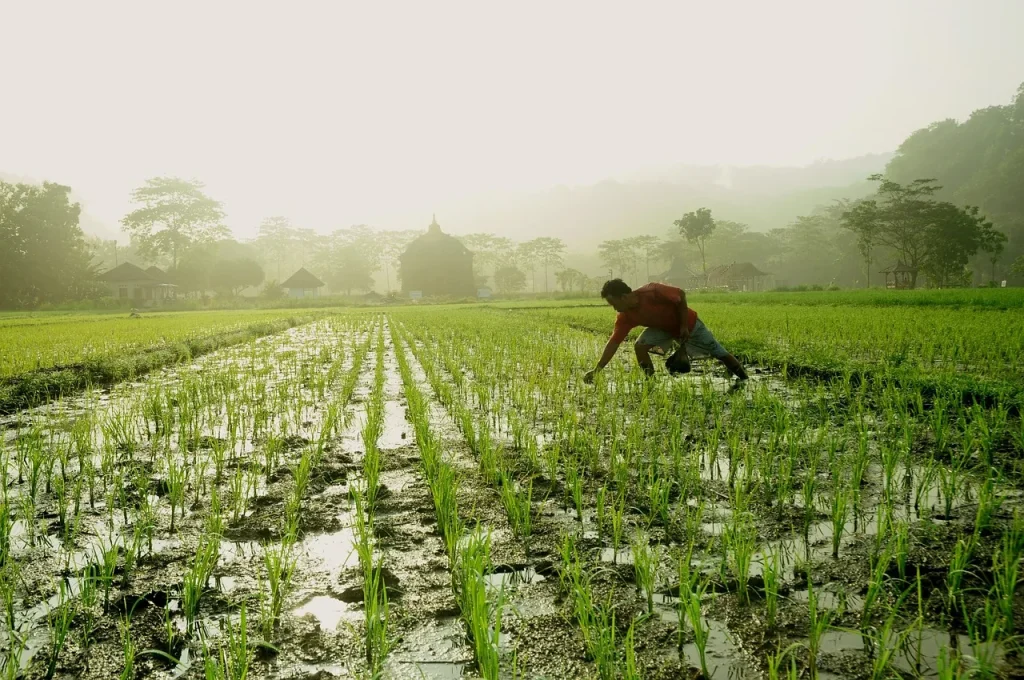Varaha Secures $30 Million to Scale Regenerative Agriculture Across India

• India’s Varaha receives 26.4 million euros ($30 million) from Mirova, marking the investor’s largest nature-based carbon commitment to date.
• Funding will expand regenerative agriculture and soil organic carbon practices to 337,000 smallholder farms across 675,000 hectares.
• The project generates verified carbon credits, creating new income streams for farmers while supporting high-integrity carbon removal.
A Major Boost for India’s Regenerative Agriculture Push
Varaha, an India-based carbon project developer, has secured a 26.4 million euro ($30 million) investment from sustainable investment firm Mirova to accelerate regenerative agriculture across two of India’s key farming states. The agreement is not only Mirova’s first carbon removal investment in India, but also its largest single nature-based carbon commitment. For India’s agriculture sector—dominated by smallholder farmers on plots under 10 hectares—the deal arrives at a moment when the country is debating how to balance food security, income stability, and climate obligations.
The new capital will support Varaha’s flagship Kheti programme, designed to scale regenerative farming practices such as direct rice seeding, crop-residue management, and soil-health restoration. Varaha plans to reach more than 337,000 smallholder farms spanning a combined 675,000 hectares. These practices are expected to increase soil organic carbon, reduce emissions, and ultimately produce verified carbon credits that can be sold to generate revenue for both the company and the farmers.
Financing a Shift to High-Integrity Carbon Removal
Mirova Senior Investment Director Charlotte Lehmann said the initiative demonstrates the role carbon finance can play in agricultural transformation. “The project exemplifies how carbon finance can drive systemic transformation in agriculture while strengthening the resilience of vulnerable rural communities,” she said. She added that the investment “opens up new avenues to scale high-integrity nature-based investments across the Asia-Pacific region.”
Varaha CEO Madhur Jain described the deal as the largest investment in the soil-carbon removal category to date. Speaking to ESG Dive, he said it “puts a spotlight on two very important aspects of agriculture: smallholder farms, which feed 37% of the population, and soil carbon, which is essential to grow food.”

The company’s model relies on producing verifiable, removal-based carbon credits rather than avoidance credits—a point increasingly watched by corporate offtakers, regulators, and standard setters across the voluntary carbon market. Credits are issued only after interventions demonstrate measurable carbon removal in soils or through regenerative practices. This structure provides the type of traceability and integrity expected by large corporates racing to meet science-aligned climate targets.
RELATED ARTICLE: PepsiCo Expands Regenerative Agriculture and Sharpens Climate, Water, and Packaging Targets
Building a Platform for South Asia’s Smallholder Farmers
Founded in 2022 by Jain and co-founders Ankita Garg and Vishal Kuchanur, Varaha was built on more than a decade of experience working with agricultural communities across South Asia. The founders focused deliberately on smallholder farmers, a group widely recognised as central to regional food security but often excluded from financial and climate-transition mechanisms. Their approach integrates agronomy support, technology-driven measurement and verification, and local partnerships to make carbon-credit generation accessible at scale.
Varaha is already operating multiple removal pathways. Alongside regenerative agriculture, it has launched biochar programmes, issued credits for enhanced rock weathering, and begun work on afforestation-linked carbon offtake projects. Across these initiatives, the company aims to build a diversified portfolio that reduces risk for farmers and appeals to multinational buyers seeking long-duration, nature-based removal credits.
Jain said the company entered the market after observing a disconnect between agriculture’s role in emissions and its potential as a removal engine. “We found a huge gap,” he said. “Agriculture contributes to almost a quarter of the total global emissions, but agricultural soils can actually help you remove carbon from the atmosphere, if done properly.”
Implications for Investors, Corporates, and Policy Leaders
For investors, the Varaha–Mirova deal adds momentum to a rapidly maturing segment of the nature-based carbon market. Soil organic carbon credits, once viewed as complex and difficult to measure, are increasingly supported by satellite-driven MRV systems, agronomic datasets, and more rigorous methodologies. Large corporates seeking high-quality removals for net-zero strategies are watching India closely, given its vast agricultural footprint and potential for regional replication.
For policymakers, the investment aligns with India’s national priorities around rural resilience, climate adaptation, and sustainable agriculture. It also reinforces the Asia-Pacific region’s growing role in global carbon-removal supply, a trend shaped by land availability, strong agrarian economies, and supportive state-level initiatives.
A Regional Play with Global Relevance
The Varaha–Mirova partnership sends a clear message to global climate-finance leaders: high-integrity nature-based removals can scale meaningfully when paired with farmer-focused design, reliable measurement systems, and long-term investment. As international frameworks continue to differentiate between removal and avoidance credits, and as corporates face rising scrutiny over net-zero claims, scalable agricultural carbon removal is likely to become a central asset in the voluntary market.
India, with its vast base of smallholder farmers, is positioned to shape that future. Varaha’s expansion provides a test case for how carbon finance can support communities, strengthen food systems, and supply the next wave of high-integrity removal credits demanded by global markets.
Follow ESG News on LinkedIn












